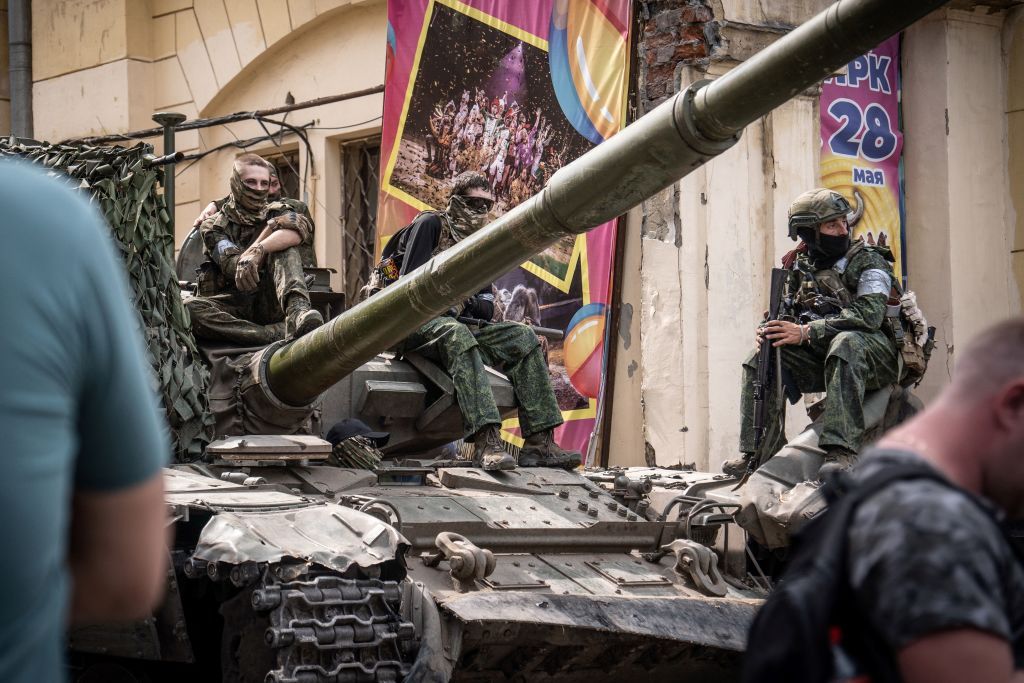Washington Post: Putin 'paralyzed and unable to act decisively' during Prigozhin rebellion

Russian dictator Vladimir Putin issued no orders for most of the day on June 24 as Wagner boss Yevgeny Prigozhin was staging an armed rebellion, the Washington Post reported, citing Ukrainian and European intelligence.
The Wagner Group leader launched a “march for justice” against Russian military leaders after alleging on June 23 that a missile strike on his mercenary forces in Ukraine had caused substantial casualties.
The mercenary group occupied Rostov and reached Moscow Oblast before unexpectedly ending the rebellion on June 24. Belarusian dictator Alexander Lukashenko claimed on June 28 that he convinced Putin not to “wipe out” Prigozhin, instead urging negotiations.
New intelligence claims that on the day of the revolt, Putin was "paralyzed and unable to act decisively," despite the fact he had been "warned by the Russian security services at least two or three days ahead of time" about the possibility that Prigozhin would instigate a rebellion, the Washington Post reported. Few major security steps were taken during that time.
According to one European security official, "there was paralysis on all levels" on the day of the uprising, with an atmosphere of "absolute dismay and confusion."
In the absence of decision-making at the highest level, local officials were left to decide for themselves how to respond.
Despite Putin's televised address on June 24, in which he condemned Prigozhin's actions as "treachery" but did not refer to him by name, many local officials could not imagine that the uprising was "happening without some degree of agreement with the Kremlin."
This belief led to many local officials deciding to not attempt to stop the insurrection, according to the security officials the Washington Post cited.
The Washington Post also quoted a senior Russian financier with ties to Russia's intelligence services who believes that Putin "lost his reputation as the toughest man in town" by refusing to act.
“Russia is a country of mafia rules. And Putin made an unforgivable mistake,” the financier told the Washington Post.
The uprising came about after months of infighting between Prigozhin and the leaders of the Russian military, which Washington Post sources believe will continue despite Moscow's attempts to create the appearance of a united front.
Kremlin spokesperson Dmitry Peskov responded to Washington Post by claiming that the intelligence had been shared “by people who have zero information.”
Convoys of Wagner fighters have been arriving in Belarus since July 15 as part of the deal Lukashenko allegedly brokered following the uprising.
The Belarusian Defense Ministry announced on July 14 that it had developed a “roadmap” for future cooperation with the Wagner Group on “training and transferring experience between units of different branches of the armed forces.”













